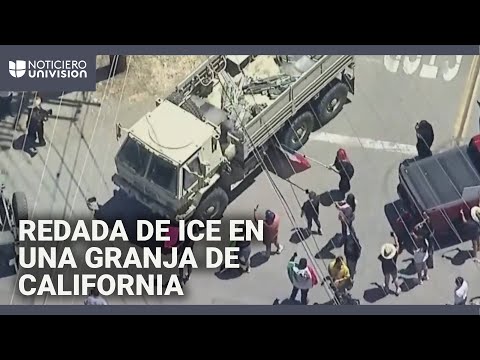Just learned the Spanish word for "raid": redada.
And "to arrest": arrestar
Just, you know, adding a few random words to my vocabulary for no reason in particular.
Just learned the Spanish word for "raid": redada.
And "to arrest": arrestar
Just, you know, adding a few random words to my vocabulary for no reason in particular.
Can anyone tell me how Spanish speakers in the US refer to ICE?
I'm guessing it's "EE-say"?
No, I mean literally how they pronounce it. I'm sure they "call" them all kinds of things 😂🖕
Good question. In this video (at the 0:23 mark), the announcer clearly says “Eye-sss”. Basically just the English pronunciation, but the vowel blend (dipthong) at the beginning is very strong and the “s” is also clearly pronounced.
From the video:
ICE = ICE (see above)
Federal agents = agentes federales
Border Patrol = Patrulla Fronteriza
https://www.youtube.com/watch?v=zWal8j2Znfc

Interesting, thanks. I would have thought they'd differentiate ICE from the usual "la migra" because of the more aggressive, militarized tactics.
But it sounds like in general conversation, using "Eyess" or la migra is fine.
"Redada" has overtones of a police raid.
For pretty much any other usage, it's "asalto". A robbery attempt is "atraco" - "atracar"
Thanks. Yeah, I'm referring here to immigration raids. I realize there is a bunch of basic language I don't know.
Another useful verb - allanar
La policía allanó el campamento de inmigrantes.
The police did more than raid the immigrant camp - they flattened it.
If you're interested in learning effective Spanish, get the book "501 Verbs in Spanish" by Kendris.
Spanish, like French, is its verbs. This is the perfect book: one verb per page, presented in all its forms, with example usages. Keep it on your nightstand, look at one verb per night.
That sounds useful. I'll look it up. I know fairly basic Spanish, enough to travel anywhere and have simple conversations in multiple verb tenses, but have been studying a lot more lately. Mostly I need to be around native speakers because understanding what they're saying is where I run into walls.